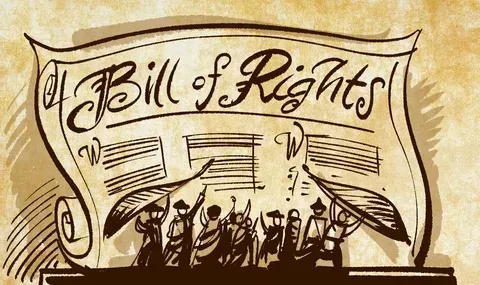Is Your Data Protected? The Laws of Data Protection
John A. Fonte, Esq. • June 6, 2020

In today’s time, the quantity and exchange of data is more prevalent than ever. In 2017, IBM had stated that over 90% of the world’s data was created in the last two years. And with increasingly advanced technology capabilities to obtain and use that data, this data is more valuable than ever. What laws protect you and your data, and what can you do once you have your data leaked? This article will provide the relevant laws to data protection, and what you as a web user can do to prevent the unnecessary transfer of your personal data.
What Is “Data”?
Data is compiled information. It can range anywhere from extremely sensitive information such as one’s social security number, health records, and finances, to innocuous information, such as company sales, or a city’s demographics.
With the global adoption of the Internet, companies have become more sophisticated in obtaining information. For example, company can record – and exchange – the data stored on its website so that its users do not need to enter in their login information every time they visit a website, or enter in their credit card information every time they make an online purchase. Collecting information of an online user’s activities is called using “cookies”. The ubiquitous use of cookies, along with many other kinds of exchanged electronic data, has made data privacy more important than ever.
What Laws Protect My Data?
Most countries, including the United States, have instituted laws to regulate data collection, data privacy, transfer of data, consent to use personal data, and what to do in the event of data breaches. Some countries have passed single laws that comprehensively address all of these issues, such as the European Union’s General Data Protection Regulation (“GDPR”). Other countries, such as the United States, have several different laws that regulate different kinds of data.
Kinds of Data Protected
Federal U.S. law prohibits the disclosure and transfer of sensitive information, such as information associated with, for example, motorists (Driver’s Privacy Protection Act of 1994, 18 U.S.C. §§ 2721 et seq.), health (Health Information Portability and Accountability Act (HIPAA), 29 U.S.C. §§ 1181 et seq.), phone calls and phone information (Telephone Consumer Protection Act, 47 U.S.C. § 227), and finances (Gramm-Leach-Bliley Act, 15 U.S.C. §§ 6802 et seq.; Fair Credit Reporting Act/Fair and Accurate Credit Transactions Act, 15 U.S.C. § 1681).
State laws, such as those found in Massachusetts, California, and New York, can add another layer of protection of data. Certain kinds of data are overseen by differing regulatory bodies both at the federal and state levels.
Data Security Measures and Data Breach Laws
The largest federal regulatory body in the online context is the Federal Trade Commission (“FTC”). Under the Federal Trade Commission Act (15 U.S.C. §§ 41 et seq.), the FTC monitors websites to see whether companies are complying with the online privacy statements that are published on those websites, or if the companies are misrepresenting their level of data privacy. As such, the FTC mandates that companies take “reasonable” data security measures to protect a consumer’s personal data.
At the state level, as of 2018, all 50 states, Washington D.C., Guam, Puerto Rico, and the U.S. Virgin Islands have statutes that require companies to report data breaches to impacted individuals. The specifics of what kind of sensitive information is subject to these laws, when a company is required to disclose the breach, and the potential penalties that a company may have for a breach all vary from state to state. In addition to federal regulatory bodies, State Attorneys General offices are often the governing authority that enforces data breach laws.
Transfer/Sharing of Data
Aside from the specific kinds of personal data described above, the United States does not place restrictions on the transfer of data to other jurisdictions. If a company uses and/or transfers your personal data for any reason (nearly every single company does), then the how, when, and why of such data use or data transfer would be explained in the website’s Privacy Policy and/or Terms & Conditions. An example website term & condition is: if a user uses a website, then the user agrees and consents to the company collecting and sharing any information gained from the user’s use of the website.
Specific Online Data Laws
Because of the lack of restrictions pertaining to acquiring and sharing of data, a user often has little power over how his or her data is to be used once on a website. Only very few states, require, for example, companies to disclose how cookies are used to collect information about a consumer’s online activities.
Moreover, only California’s Consumer Privacy Act (“CCPA”), which became effective on January 1, 2020, requires companies to disclose what kinds of data are collected, the commercial purpose of that data, and the categories of third-parties with whom the data is shared. California residents can also request access to their collected information, make demands upon companies to delete such collected information, and institute a private right of action for a violation of the CCPA. Although California is currently the only state to have such a privacy law, New York, Pennsylvania, Minnesota, and Massachusetts have similar privacy laws pending. Visit the International Association of Privacy Professionals
for an overview of privacy laws in your state.
The recent enactment of the CCPA has benefitted users both residing in and outside of California. Although non-California residents may not have some of the added rights, websites have been forced to change their data-driven business models and update their privacy policies to comply with the CCPA, even though the website is used by residents of from all over the world. Likewise, the European Union’s GDPR has caused United States companies to update their data policies due to the international transfer of data. In fact, the GDPR is the reason why most companies now have disclaimers on the bottom of their websites pertaining to cookies, even though many U.S. states do not have laws requiring such disclaimers.
What Can Be Done?
While only specific kinds of sensitive data, such as health or financial records, are protected by law, users remain at the mercy of a company’s discretion as to how a company uses their personal data. But that does not mean users are at a complete loss. There are ways that to curb the spreading of data. Deleting cookies, using web browser “no-tracking” capabilities, and other tech-savvy techniques to limit the spread of data.
Nevertheless, improper data transfers and data breaches will continue to occur in today’s Information Age. If you believe your sensitive data has been improperly handled, contact a lawyer to navigate the jurisdiction-sensitive laws on your behalf.
DISCLAIMER
The information on this website is for general information purposes only. Nothing on this site should be taken as legal advice for any individual case or situation. This information is not intended to create, and in no way constitutes, an attorney-client relationship.
More News & Resources

Surely no one would doubt that children are curious creatures, and as such, they often end up in places they don’t belong if they are not well looked after. The curiosity of a child’s mind knows no bounds, and while, as parents, we have come to expect simple “boo-boos” like a scrapped knee for example, sometimes curiosity can lead children into far more precarious situations. Obviously then, there are many situations where, from the worldview of an adult, while we see dangers that should best be avoided, a child may only see adventure – a new mystery waiting to be explored. While, of course, it is important that parents foster their children’s inquisitive minds, a parent’s first priority should surely always be to protect their children from serious bodily injury, or worse. Now that Summer is just around the corner, protecting our children is particularly important as swimming pools will start to be opened up and trampolines will be going back out in the yard. Fortunately, the law recognizes the tendency of children to view all the world as a playground, and imposes a special duty on owners of such things as swimming pools and trampolines to protect children from the hazard these things can represent. Like many states, New Jersey has adopted this principle of tort law, called the attractive nuisance doctrine. Put simply, an attractive nuisance is any man-made construct present upon land, which may lure children, and which can cause them bodily injury should they play on, in, or around it. The defining characteristic of an attractive nuisance is just that – that it is attractive to children and that the potential fun the attractive nuisance poses, entices a child like a moth to the flame. Swimming pools, playground equipment, and other artificial landscaping features can make your yard a magnet for every kid in the neighborhood, but the very things that might make your yard so enticing to a child may also be the very things that make it so potentially dangerous for them. As a result of this potential for harm, the law places a heightened duty on property owners who have items that will both attract children and present a unique potential for harm. The theory is that children are too young to appreciate the risk of harm these attractive nuisances pose, and therefore, because these items essentially induce a child into a hazardous area of your property, the property owner is expected to take special precautions to mitigate the risk of harm, for example, by putting a fence around a pool. Elements of Attractive Nuisance If the property owner knows, or reasonably should know, that children are likely to trespass upon his or her property; In response to an artificial condition present upon the land; Which the property owner knows, or reasonably should know poses an unreasonable risk of death or serious bodily injury; Such that a child, because of their youth, does not discover the condition or realize the risk involved; and Said property owner fails to take reasonable precautions to safeguard against the risk of injury. Common Attract Nuisances Water Features Studies suggest that an adult can drown from as little as six tablespoons of water. This number is even smaller for a child. Water features on property – including fountains, pools, and wells – can pose an enormous risk of drowning to children who may want to splash around inside, particularly if they cannot gauge how deep the water is, and especially if they have not yet learned to swim. A swimming pool is the most common example of an attractive nuisance, and as the summer weather soon comes upon us, pool owners – especially owners of inground pools – should be particularly mindful of the hazard posed by the attractive nuisance. As a pool owner, you could be liable for accidents even if children sneak into your pool without your consent. Whether the pool is in-ground, above ground, or even a kiddie pool, you can reduce your risk by surrounding your pool area with a fence, installing a locking gate (preferably one with an audible alarm), and covering the pool with a safety cover when not in use. New Jersey has passed legislation specifically outlined the heightened obligation of pool owners. Under New Jersey’s swimming pool safety act, called “William’s Law,” any pool must be fenced or walled in with a structure of at least 5 feet high and without any openings wide enough for a 4-inch object to pass through it. If a pool owner fails to properly enclose the water feature and a child is injured as a result, the child’s family may be able to sue under the attractive nuisance doctrine, as well as raise a negligence per se claim in connection with the pool owner’s violation of William’s Law. Trampolines & Playground Equipment Most home playground injuries involve swing sets, according to the Centers for Disease Control (CDC). To reduce the chance of accidents, therefore, the National Association of Home Inspectors recommends spacing swings at least 24 inches apart and at least 30 inches from the support frame. Swing sets – especially wooden ones – should be checked regularly for wear & tear, warping, or rot. Because most injuries from swings also involve falls, installing a shock-absorbing surface for your playground like sand, wood chips, or gravel, for example, can help mitigate the likelihood of injury. Trampolines can also pose a significant safety hazard to young children who may not know how to utilize one safely. If you are planning on purchasing a trampoline, look for a model that has a zippered entrance which can be locked. Additionally, consider installing a locked and alarmed fence around your yard or around the playground to make the feature inaccessible to uninvited users. Home Construction Projects Construction projects and the tools and equipment which may be present on a construction site can be kid magnets. Young children often get toy tool sets to play with, so seeing a real hammer or saw can be enticing. Rebuilding a deck, repaving a driveway, pouring concrete, building additions, and even repairing a roof can all present potentially dangerous conditions which a child may be drawn to. To some children, a ladder must be climbed or a hole must be jumped in. The law doesn’t expect homeowners to complete their construction projects overnight, but when stepping away, it is critical to turn off and put away power tools, remove heavy equipment if possible, and consider putting up hazard signs, safety cones, or even a barrier of caution tape to make the potential danger clearly evident. Our Tip: Be Alert to Hazards At the end of the day, even with due care it is impossible to prevent all eventualities, especially when children are involved, and unfortunately accidents do happen. At the same time, it is also important to be vigilant and to stay aware of hazardous or potentially hazardous conditions on our property which children may be drawn to. This is especially true if you live in a neighborhood with families who have children or near an area where children may be present, such as near a park or a school. Call The Lento Law Group If your child was the victim of an attractive nuisance or was otherwise injured on another person’s property, call the Lento Law Group today for a free phone consultation. Our caring, compassionate, and knowable staff will be happy to go over the facts of your potential case so that our experienced personal injury attorneys can see if you have a viable cause of action. There is absolutely no cost to you unless we secure a financial recovery on your behalf. Call today!










